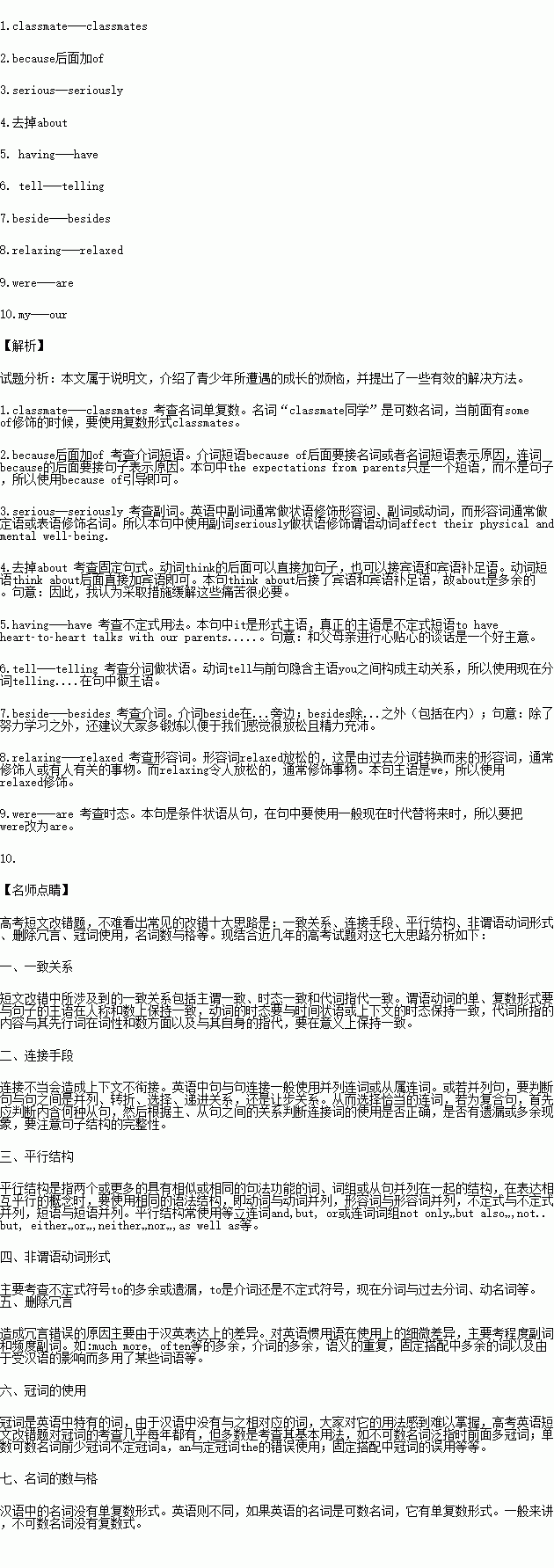题目内容
短文改错
短文中有10处语言错误。请在有错误的地方增加、删除或修改某个单词。
增加:在缺词处加一个符号(^),并在其下面写出该加的词。
删除:把多余的词用斜线(\)划掉。
修改:在错的词下划一横线,并在该词下面写出修改后的词。
注意: 1. 每句不超过两个错误;
2. 每处错误及其修改均只限一词;
3. 只允许修改10处,多者(从第11处起)不计分。
We senior school students do have some growing pains. Take some of my classmate for example,they often feel upset because the expectations from parents,endless homework and the pressure of exams. These serious affect their physical and mental well?being. Therefore,I think about it quite necessary to take measures to relieve the pains. First,it is a good idea to having heart?to?heart talks with our parents,tell them we won’t disappoint them. Meanwhile,it’s advisable to spare some time to take some exercise beside our devotion to the studies so that we will always feel relaxing and energetic. As long as we were fully prepared,we are sure to achieve great success in my academic performance.
 名校课堂系列答案
名校课堂系列答案
